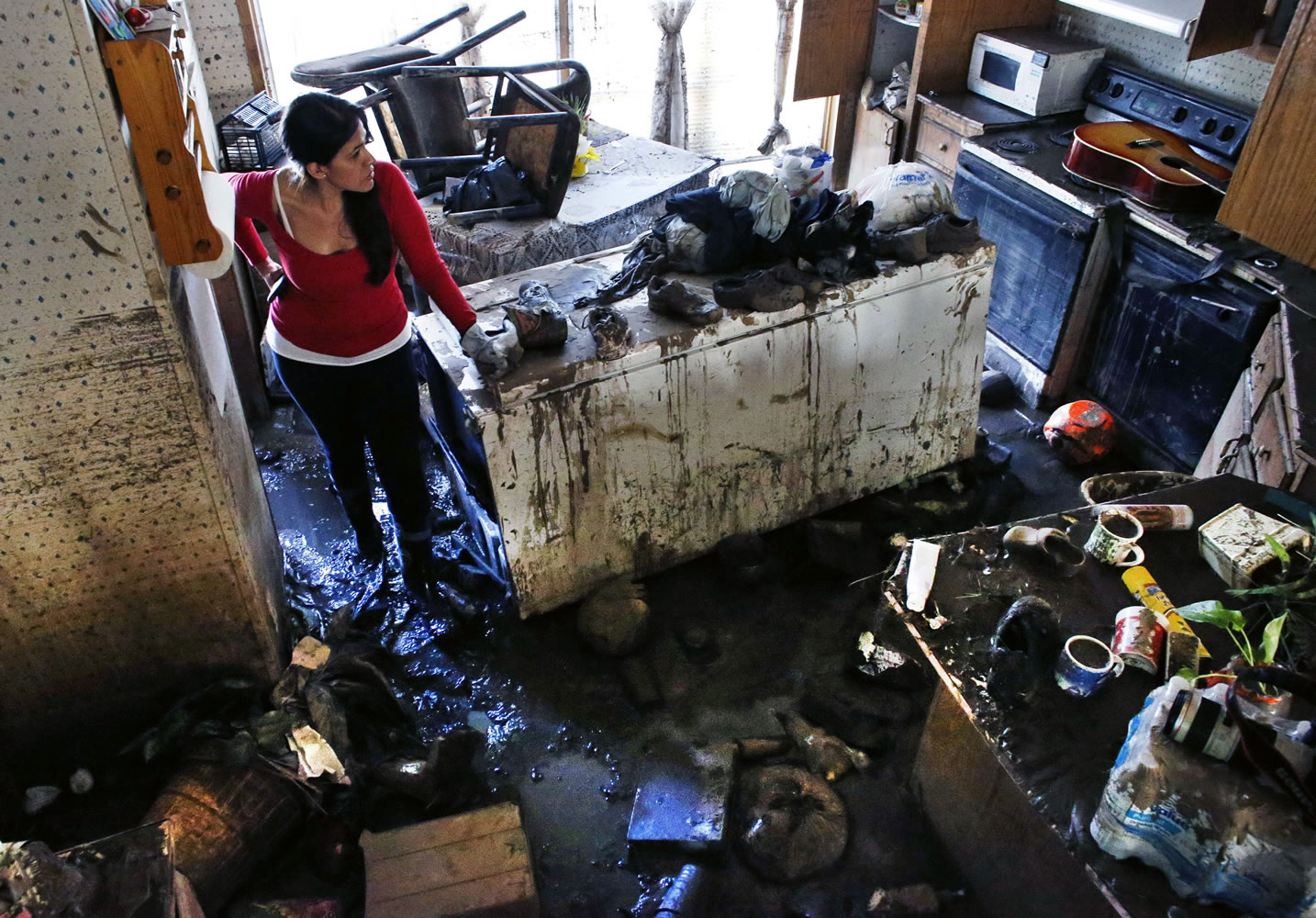EVANS, Colo. — Immigrants living in the U.S. illegally returned to their mobile home parks in flood-ravaged Colorado to find that there was little left to salvage — not the water-damaged cars, not the old family pictures and not the sheds carried away by the rushing waters.
The destruction, however, was only the beginning of what’s been a nightmarish two weeks. They didn’t have flood insurance. And because they are not citizens or legal residents — and don’t have family members who are — they won’t get the federal government’s help.
“They say that faith and hope die last,” said Juan Partida, 40, a dairy worker who along with his wife Mari, who is pregnant, do not qualify for federal emergency aid because they are in the country illegally. “We need to have faith and hope that we’ll get help.”
How quickly they can rebuild their lives, relying largely on local government and nonprofit organizations, will have long-term ramifications on the area industries that depend on their labor, from meatpacking plants and farms to construction and hotels.
“They’re out of their homes, and a lot of them have lost their vehicles in this, they’re impacted. So the economy is going to be impacted,” said Lyle Achziger, mayor of Evans, a city on the northern plains whose population of 19,500 is 43 percent Latino.
Achziger said the city hopes to get people help by having them to register with the city, county and volunteer aid organizations.
“We have told them that immigration status is not our focus. … Our focus is getting people out of the cold, getting a roof over their head and getting them a warm meal,” he said.
The JBS meatpacking plant in Greeley employs nearly 50 immigrant workers whose families were displaced. The company has paid for hotels, delivered food, and tried to connect families with available services, company spokesman Cameron Bruett said.
The waters that ripped through the Evans mobile home park the morning of Sept. 13 gave residents only minutes to get out. Many left with just the clothes they were wearing.
In Partida’s trailer, he and his wife had toys and clothes from their boys, 8 and 3, who died in a car accident nearly a year ago with their aunt and uncle. “Not being able to get none of those things out, for me that’s what’s saddens me the most,” he said.
In all, there were about 150 homes. Every single one is marked with an orange X to signify it’s uninhabitable.
Many of the mobile park residents came from Mexico, and those in the country illegally will not get help from the Federal Emergency Management Agency unless they have U.S. citizen children or a family member who is a legal resident.
In the nearby town of Milliken, where Latinos account for 28 percent of the population, mobile homes near the Big Thompson and Little Thompson rivers faced similar destruction as in Evans.



